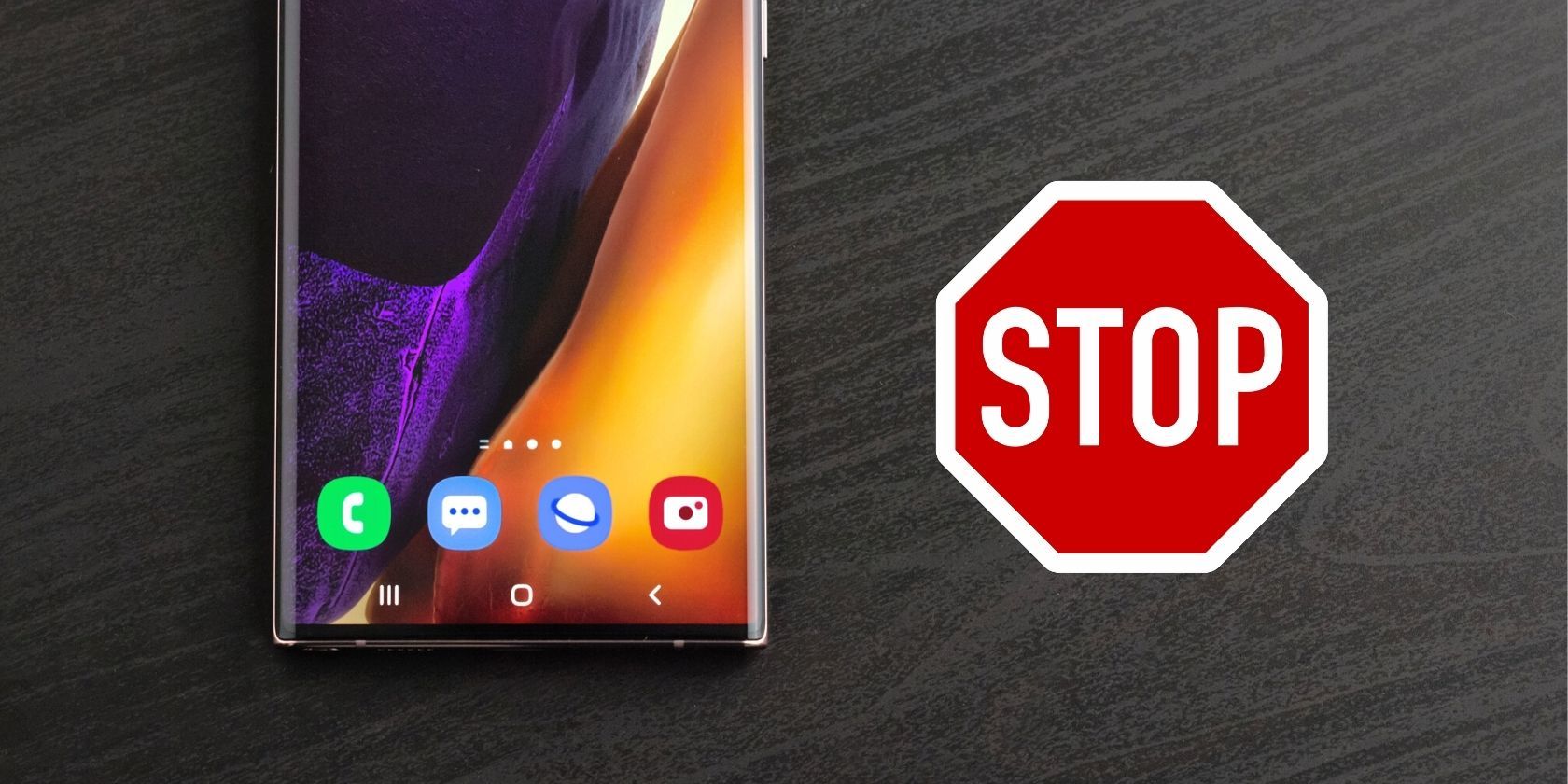If you own a Samsung device, you've probably noticed how it tends to automatically download bloatware apps without your permission. It's a problem that's more common on the company's budget and mid-range devices than its flagships.
Unfortunately, there's no single button you can tap to stop the Galaxy Store from downloading these apps on your phone. However, there are a number of things you can do to deal with this problem. Here are five ways to stop your Samsung phone from automatically installing apps.
1. Remove Galaxy Store App Permissions
The first thing you should do to stop the Galaxy Store from automatically downloading apps is to remove its app permissions. To do so, go to Settings > Apps > Galaxy Store > Permissions.
Here, select a permission under Allowed and select Don't allow. You'll receive a warning after this; simply tap Don't allow anyway and continue. Do the same for all other permissions under Allowed.
Doing this will make it harder for the Galaxy Store app to use the resources on your phone and download files. After you remove the permissions and open the app, it'll once again ask you to grant it permissions. Make sure to tap Don't allow on the pop-up to deny them.
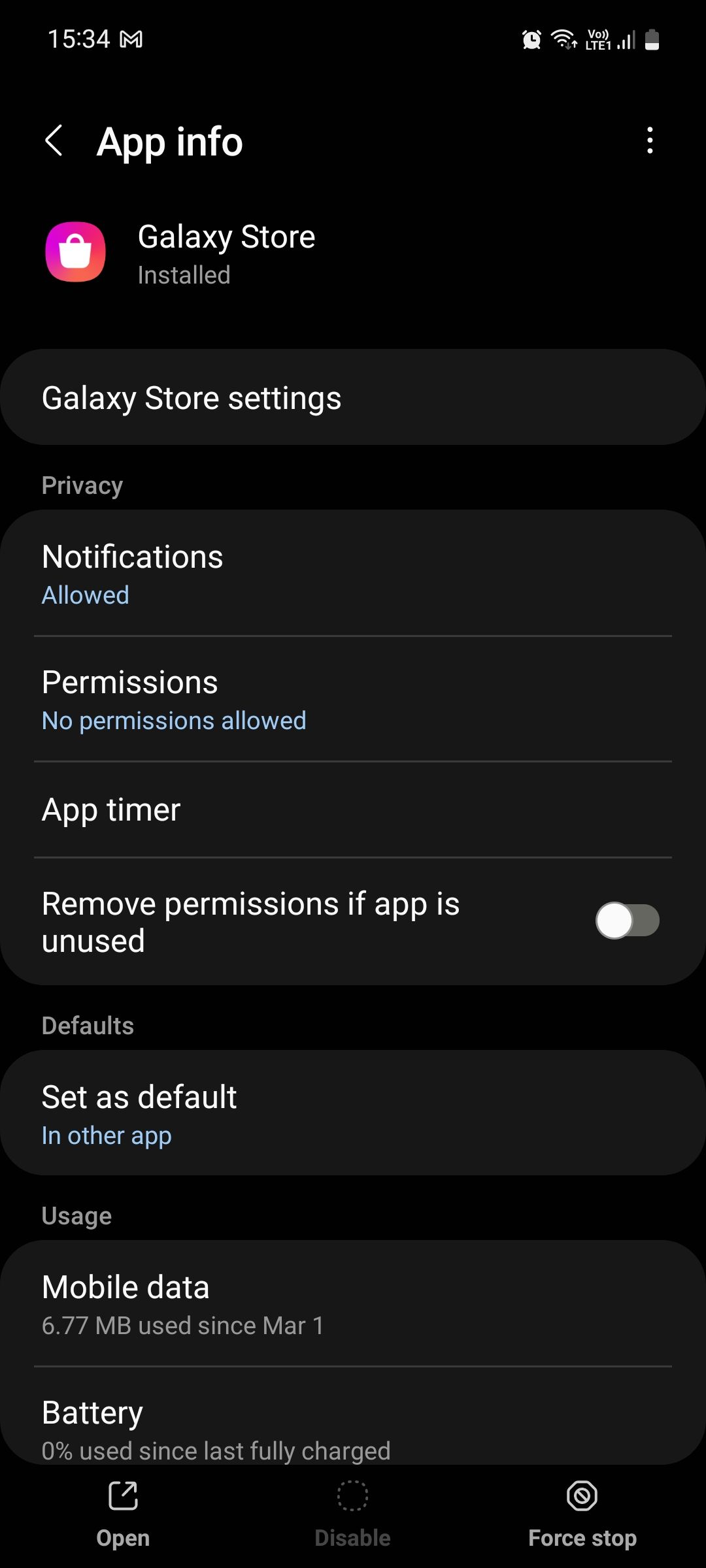
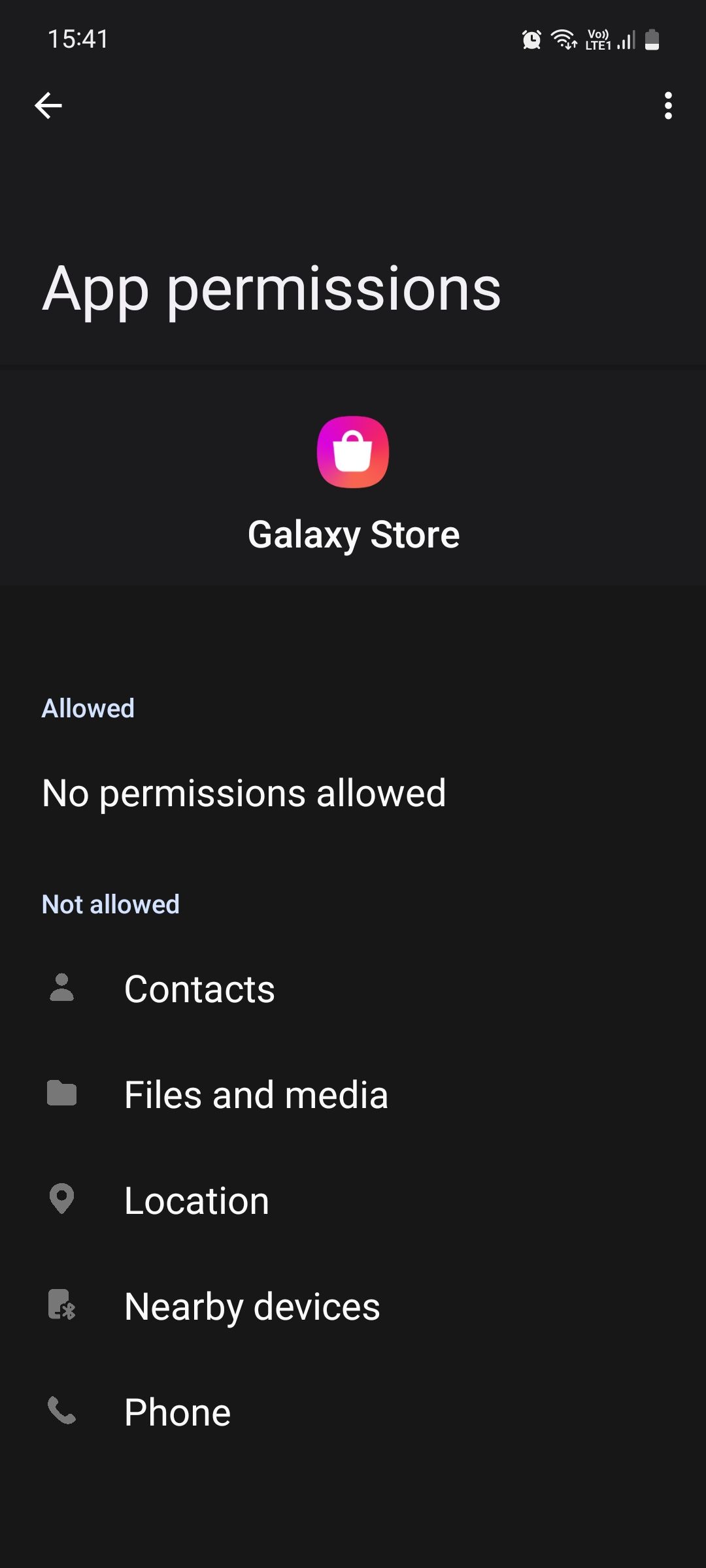
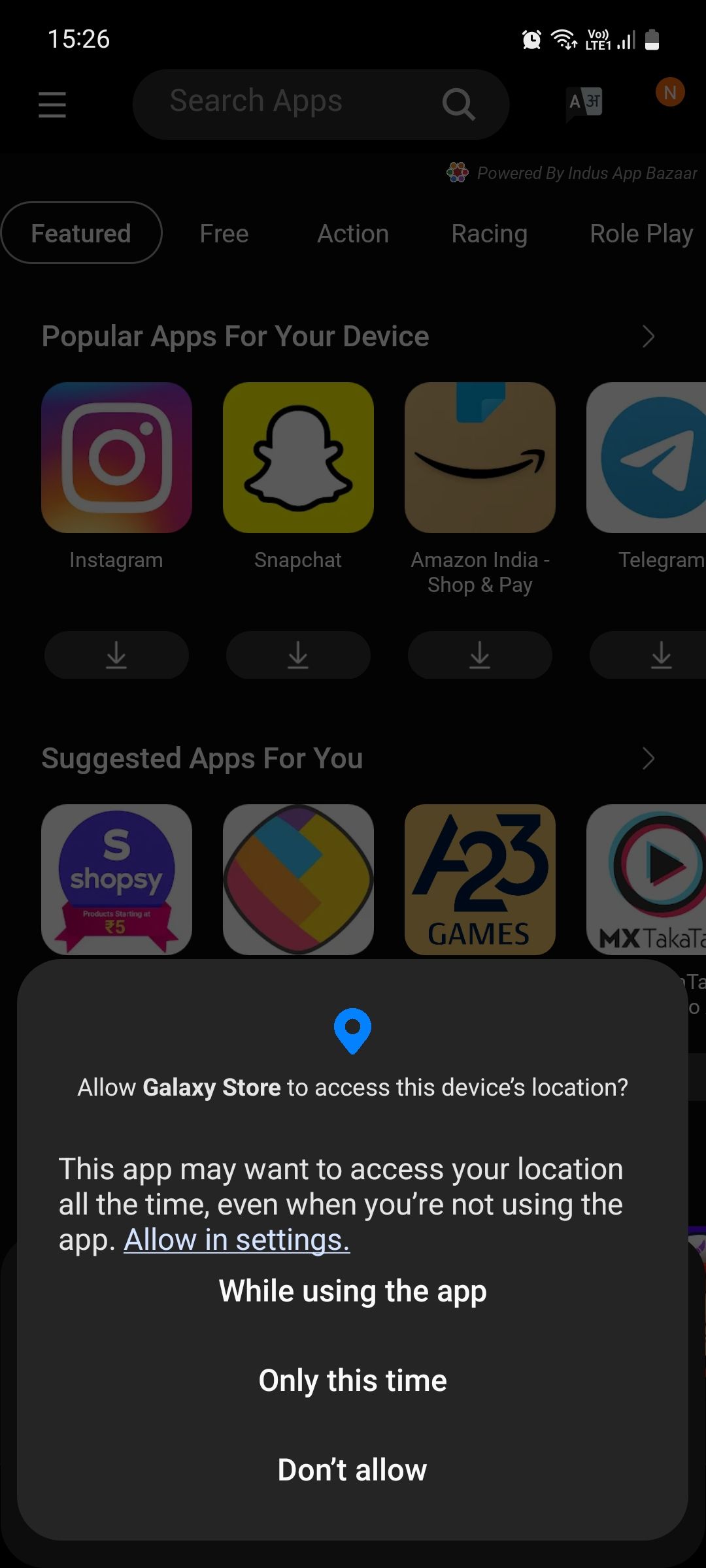
The latest version of the Galaxy Store restricts turning off app notifications. All other permissions such as Contacts, Phone, and Location can still be disabled.
2. Turn Off All Galaxy Store App Settings
In addition to removing permissions, you can also disable all Galaxy Store app settings. To do so, start by going back to the app info page (Settings > Apps > Galaxy Store). Here, turn off the following settings:
- Tap Set as default and toggle off Open supported links.
- Tap Mobile data and toggle off Allow background data usage.
- Tap Change system settings and toggle off Allow permission.
- Tap Install unknown apps and toggle off Allow from this source.
- Tap App details in store, tap the three dots menu button at the top of the app page that opens, and unselect Auto update.

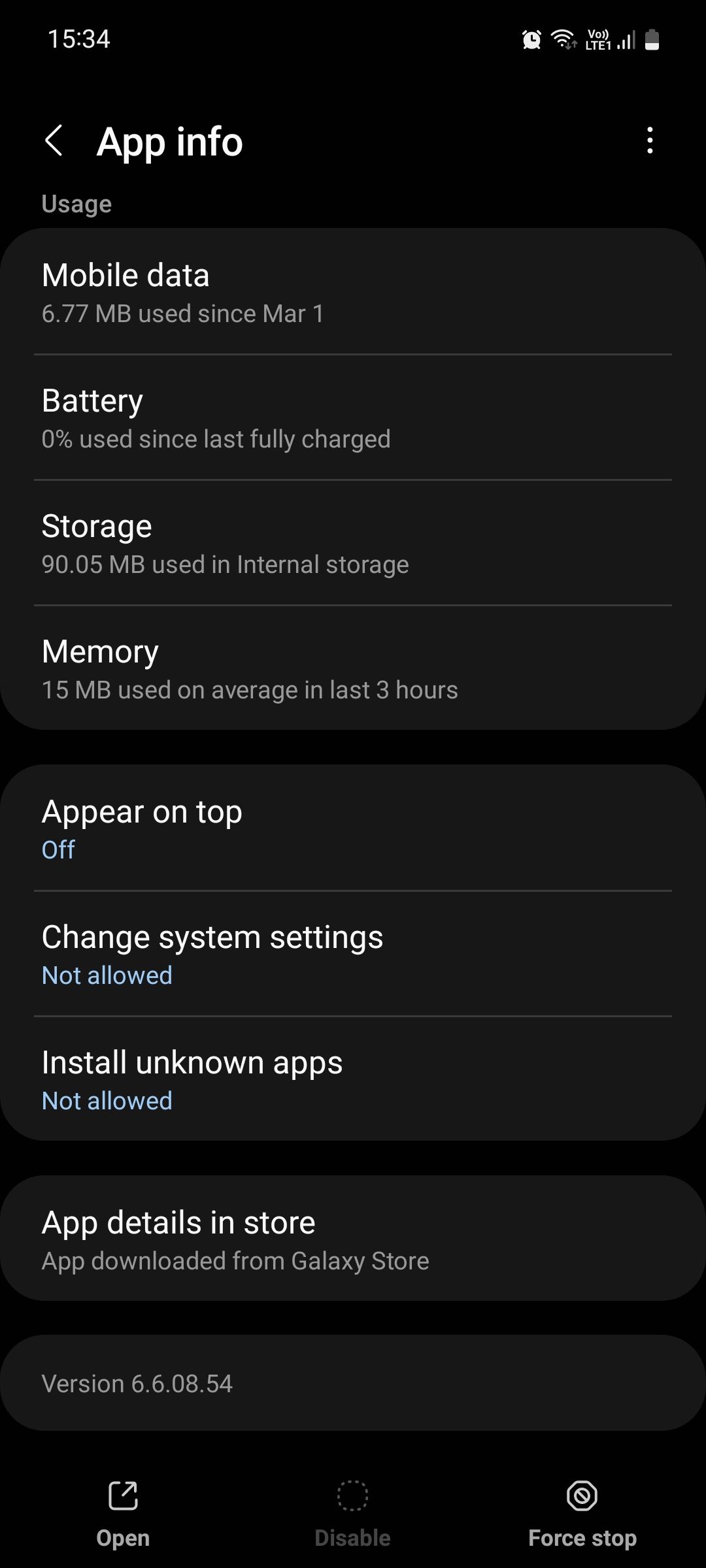
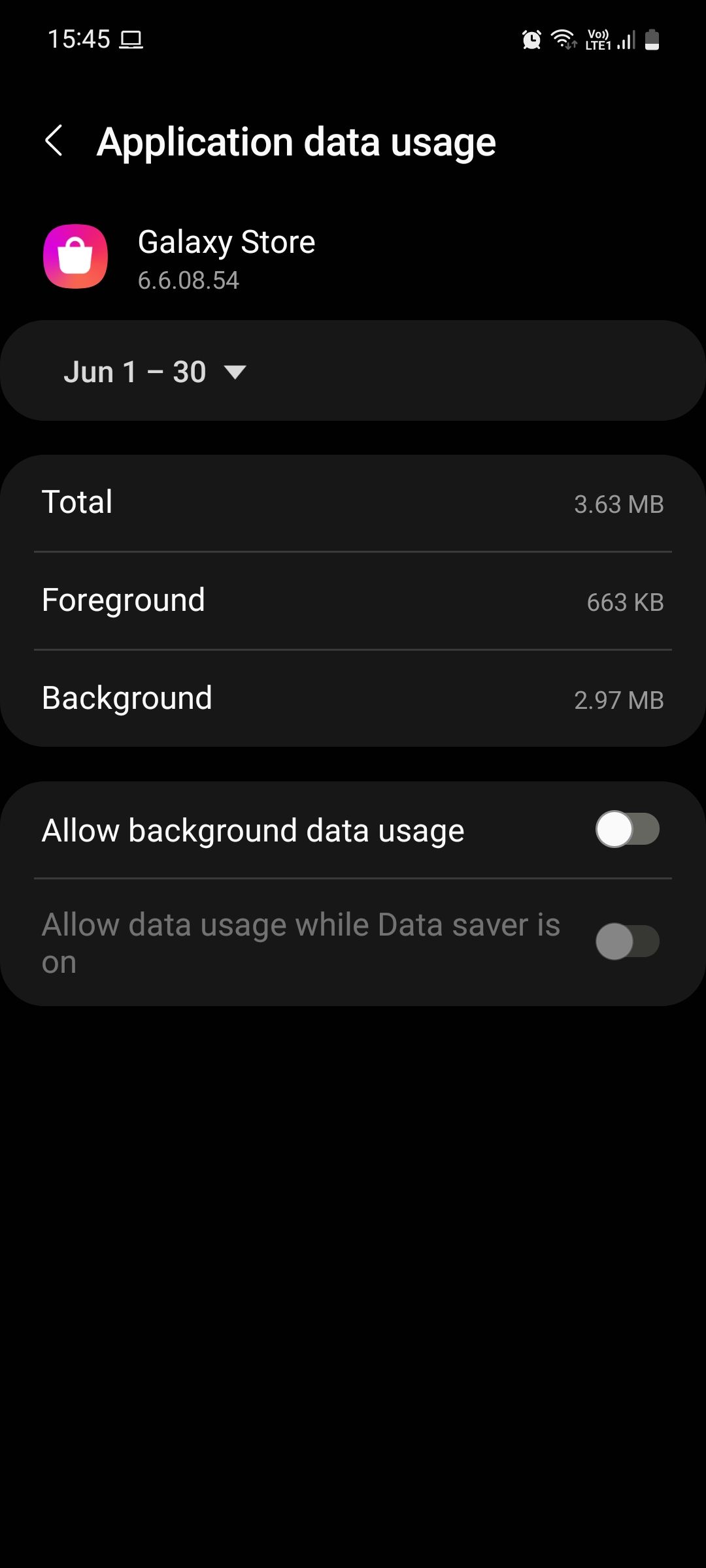
3. Unselect Recommended Apps When Setting Up the Galaxy Store
If it's your first time opening the Galaxy Store app, you might see an app recommendation page marketed as "Popular apps to get started." Be careful here; if you rush through the setup process, you might end up downloading a bunch of bloatware on your phone.
Here's what to do:
- Under Your Start Up Apps, you'll see a list of app groups. Each app group will have one or more apps auto-selected. Tap Edit next to an app group and manually unselect all selected apps. Do the same for all the app groups. Once done, tap Continue.
- On the following Customize Profile page, tap Skip.
- Upon start-up, you might see a pop-up asking you to select your regional language. At the bottom, unselect Receive notifications about new and exclusive content from Galaxy Apps and tap Done.
- You might also receive a pop-up titled "Marketing Choice." If so, tap Cancel.
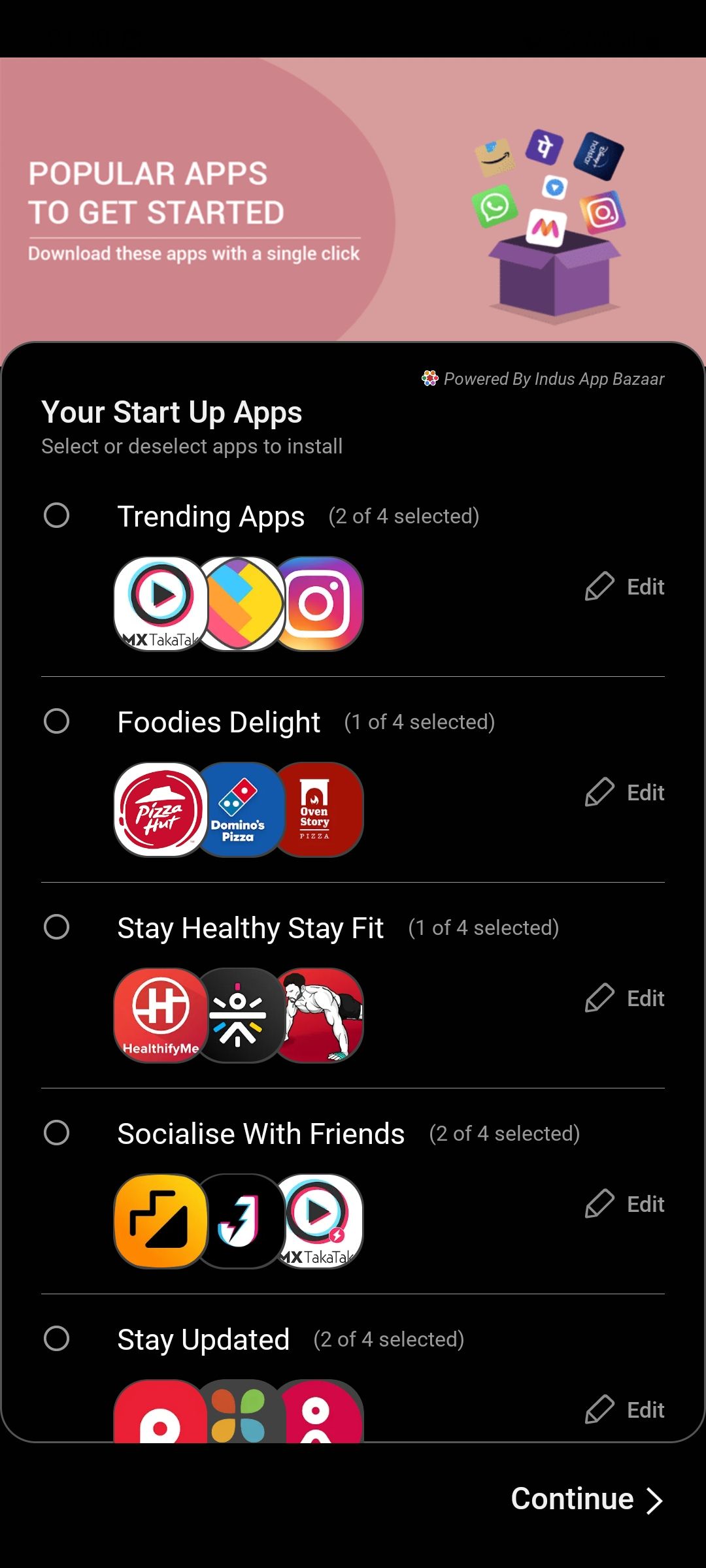
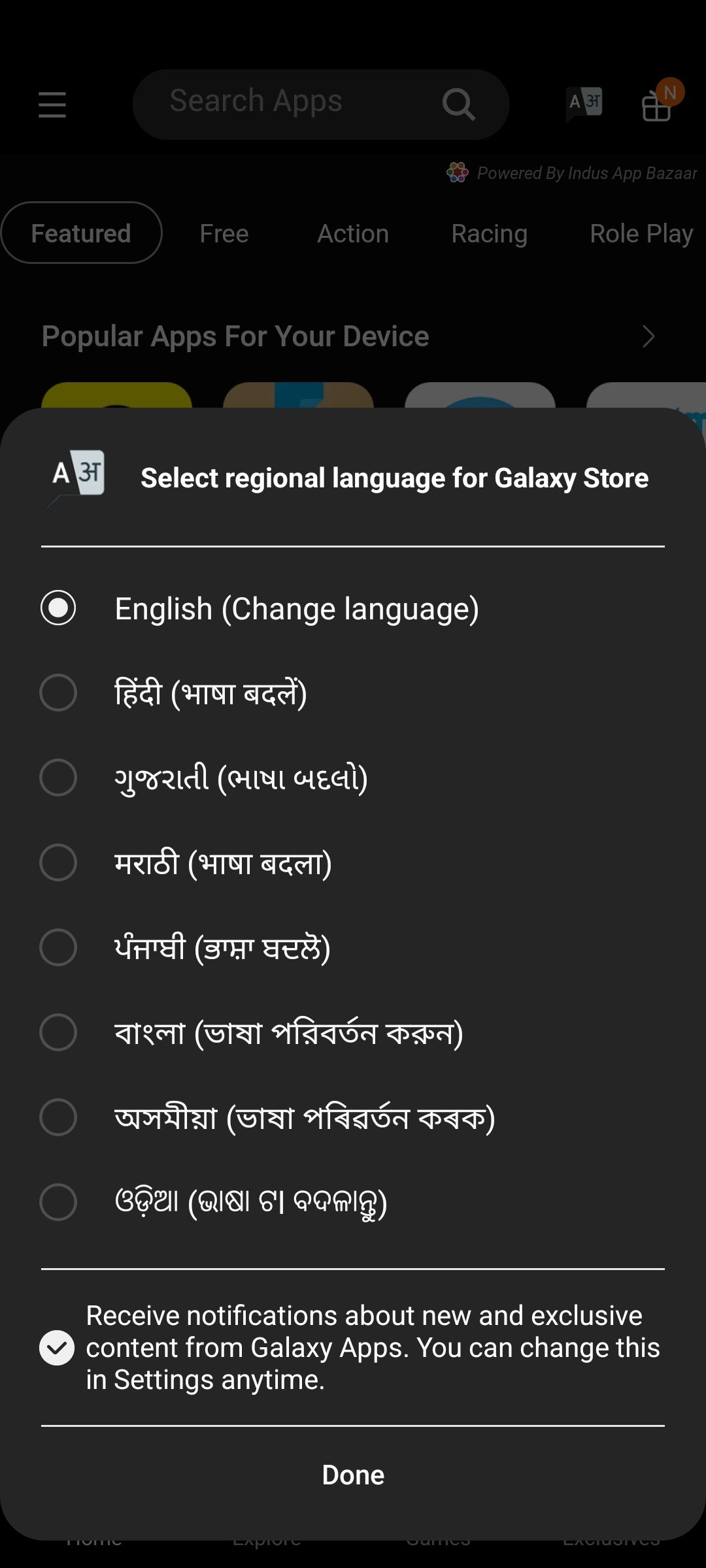
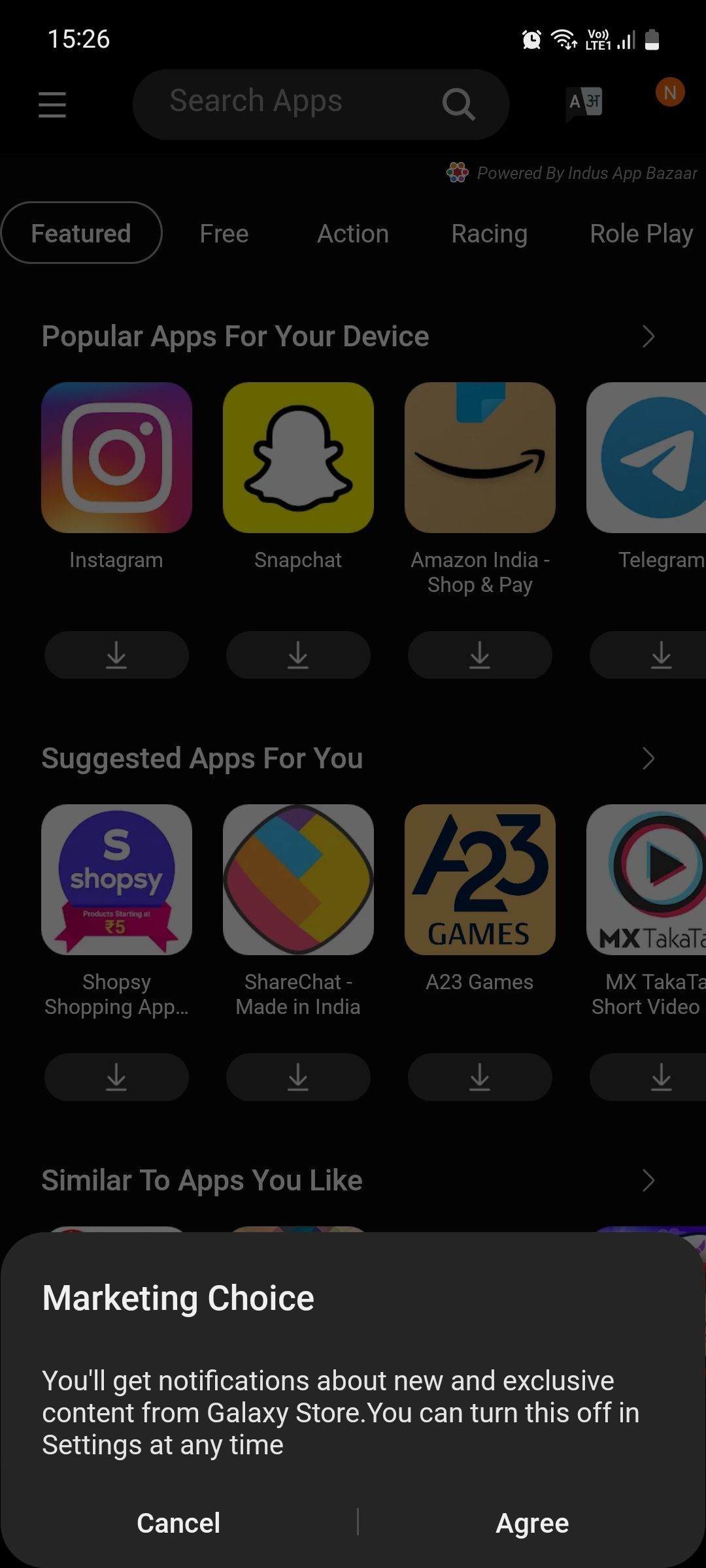
As of the latest update, the app recommendation page no longer appears when you open the Galaxy Store app for the first time, and you're not automatically enrolled to receive news and special offers either. However, you might still see an ad for a random app or game.
4. Turn Off Galaxy Store In-App Settings
Next, disable the settings from inside the Galaxy Store app. Open the app, tap the hamburger menu (the three horizontal lines), and tap the Settings menu (the gear icon) to go to Galaxy Store settings.
Now, follow the instructions below:
- Tap Auto update apps and select Never.
- Toggle off Get news and special offers.
- Tap About Galaxy Store > Auto update Galaxy Store and select Using Wi-Fi only.
- If you're already signed in, tap Customization Service; this will take you to the Customized apps page. Here, unselect all selected apps. You might receive a warning for some apps; simply tap Stop to continue.
- Next, tap the back icon on the screen to head to the Customization Service page. Be careful here; if you go back using on-device navigation buttons or swipe gestures, it'll take you back to the main settings page. You have to tap the back arrow icon at the top. Once on the Customization Service page, toggle off Customize this phone, Use mobile data, and Customized ads and direct marketing.
- On the same page, tap Erase your data, tap Erase again, type your Samsung account password, and tap OK.
- Tap Stop customizing all devices, tap Stop all customization again, and tap Turn off to confirm.
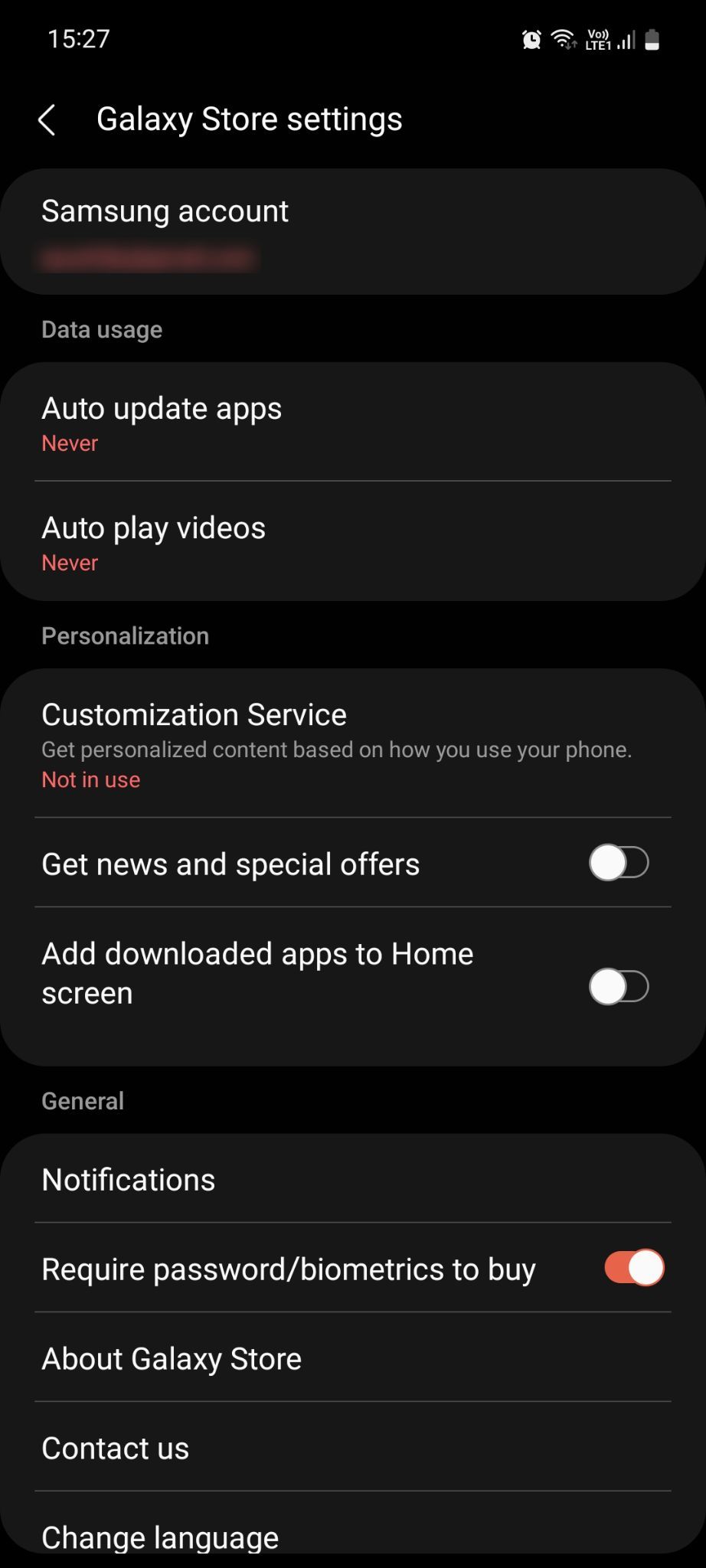
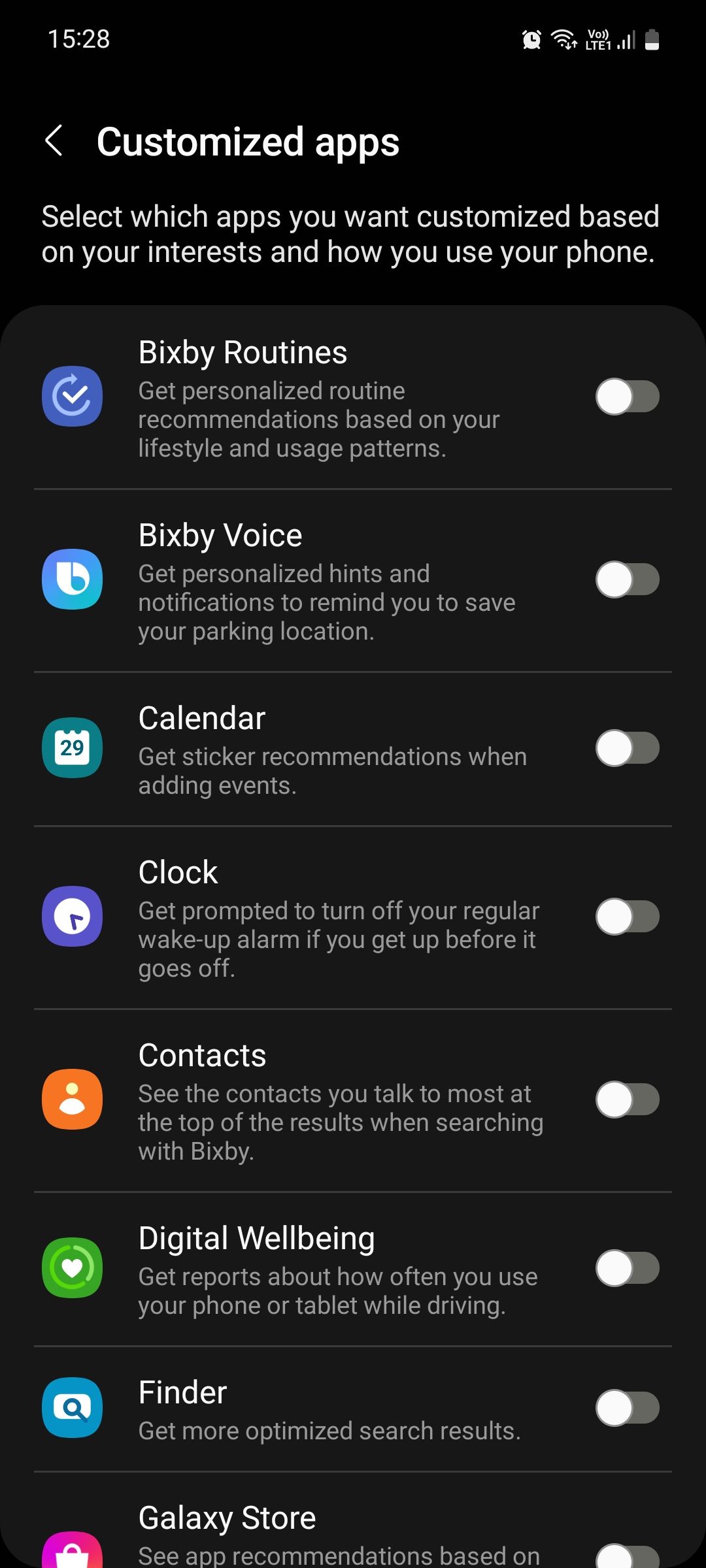
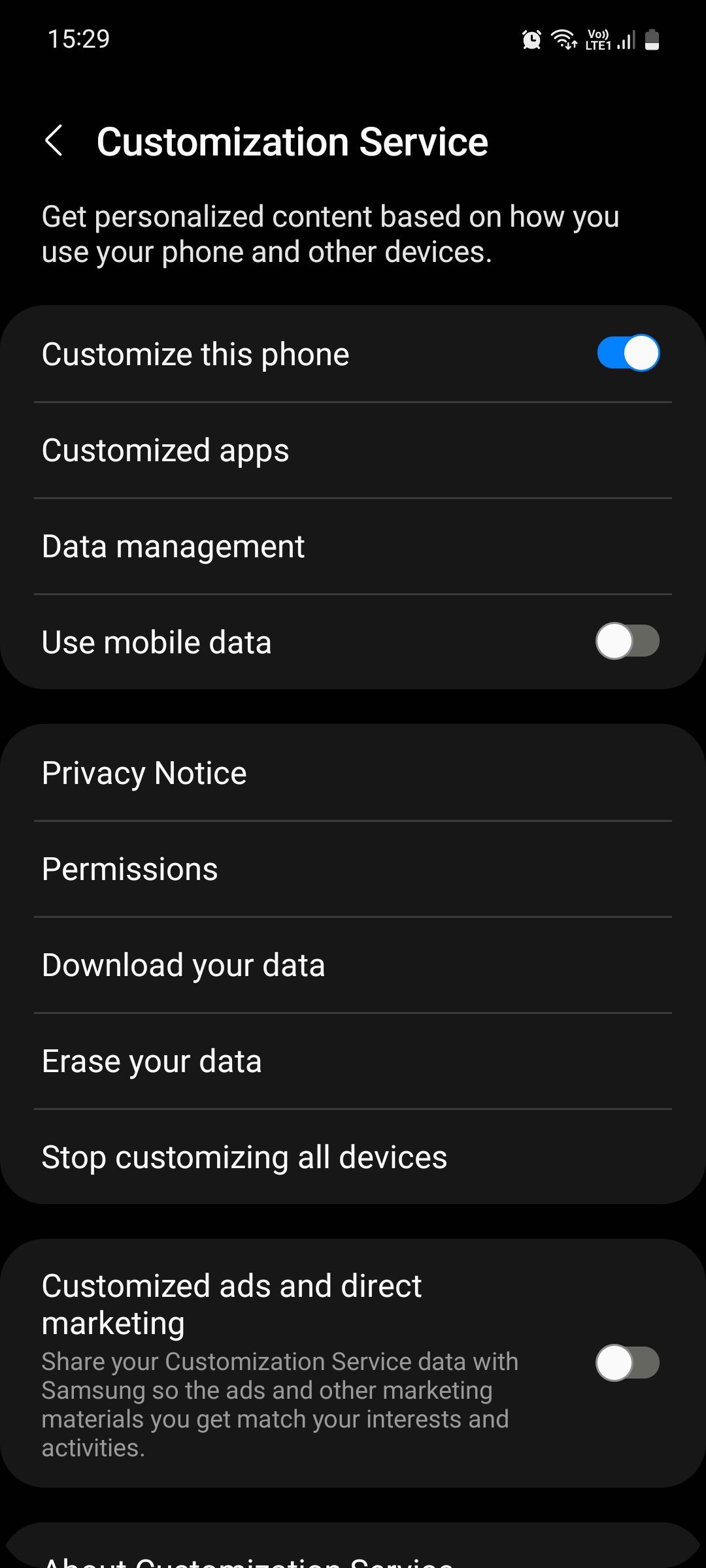
5. Stop Using the Galaxy Store Entirely
If you're still getting apps automatically downloaded on your device, then your last resort is to simply give up using the Galaxy Store altogether. But before you do, keep in mind that a lot of Samsung apps are not available on the Google Play Store.
So, if you want to keep your Samsung apps updated, you'll need Galaxy Store up and running. And if you use Edge panels on your Samsung phone, you also won't be able to download third-party edge panels without it. But if you don't care about all that, get rid of the store.
The problem is you can neither uninstall nor disable the Galaxy Store app, unlike some other pre-installed Samsung apps since it's an integral part of One UI. However, there are still other ways you can stop it from running in the background. To do so, go to the Galaxy Store app info page, and follow these tips:
- Tap Force stop > OK.
- Go Storage > Clear data > OK.
- You can also select the three dots menu at the top of the page and tap Uninstall updates > OK. This will downgrade the app back to its factory version, i.e., the one that came installed on your device before receiving any updates. Doing so is a bit risky since the app may interrupt the use of some Samsung services which require regular updates.

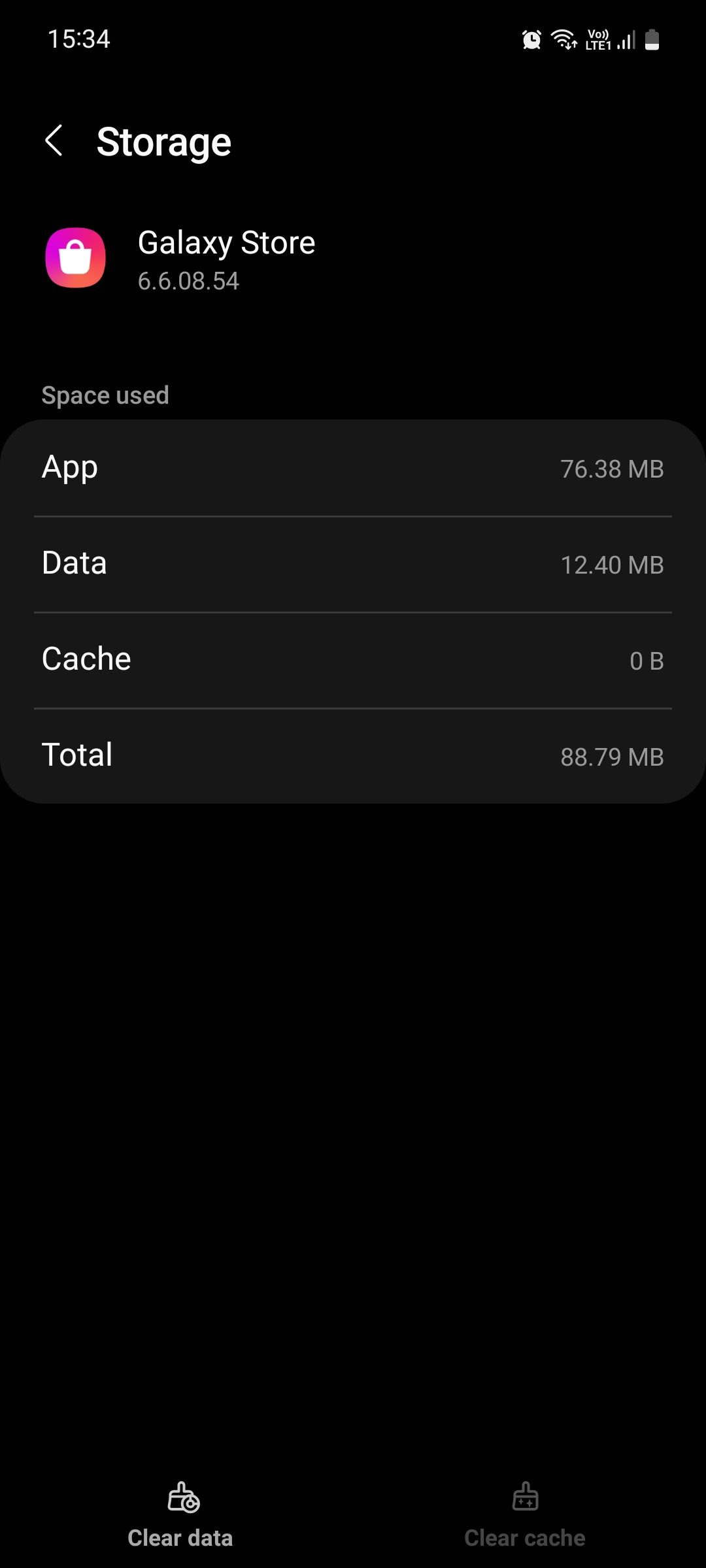
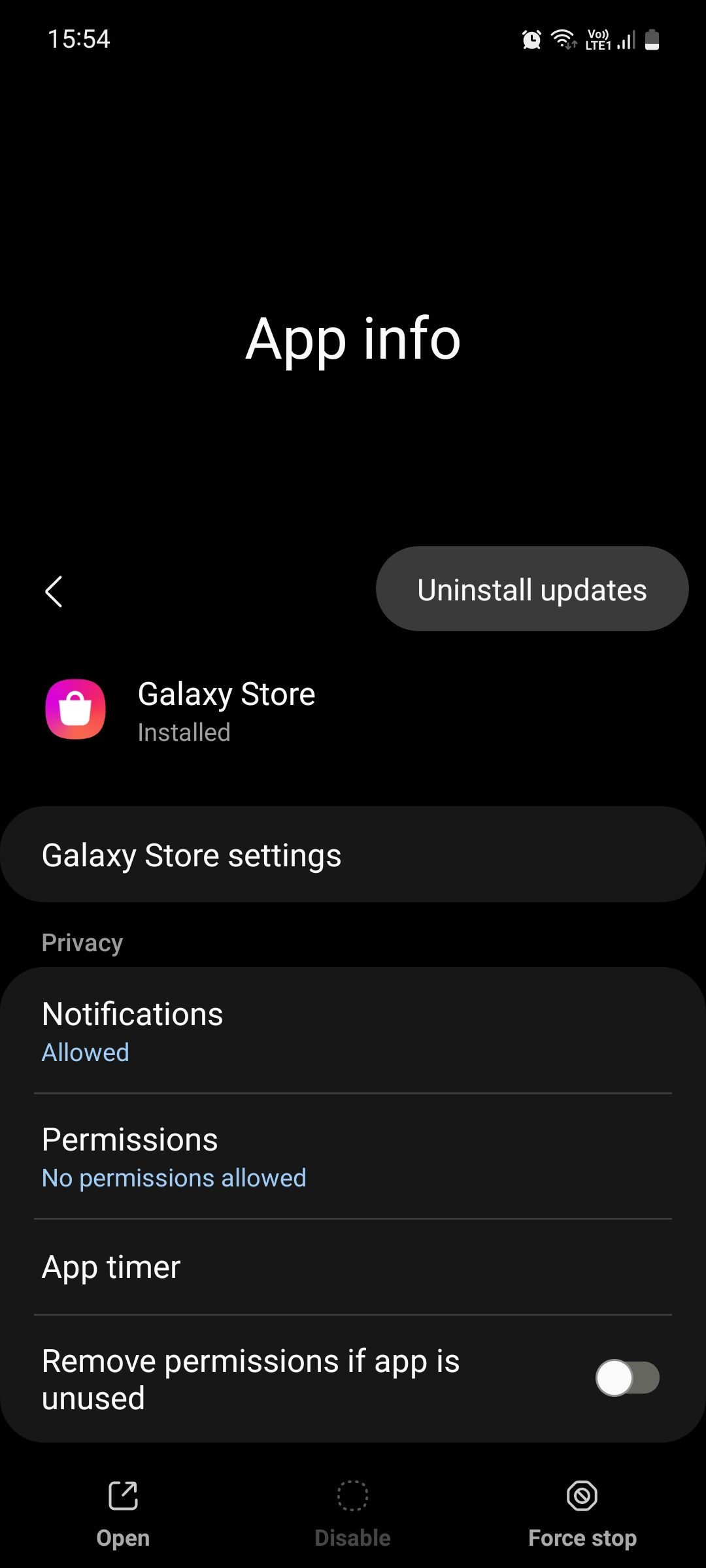
Stop Installing Bloatware on Your Galaxy Phone
Nobody likes to see unwanted bloatware apps appear on their screen out of nowhere, especially on a phone from a known company like Samsung. It wastes storage, hogs processing power, and reduces battery life.
It's frankly disappointing to see Samsung resorting to such methods just to earn some commission from third-party developers. It's like using one of the tricks from Xiaomi's playbook.
Only recently, Samsung started removing ads from One UI, so there's room to believe that the company will stop this practice of auto-downloading bloatware on users' devices in the future too. But for now, your best chance at getting rid of them is to follow the tips above.

